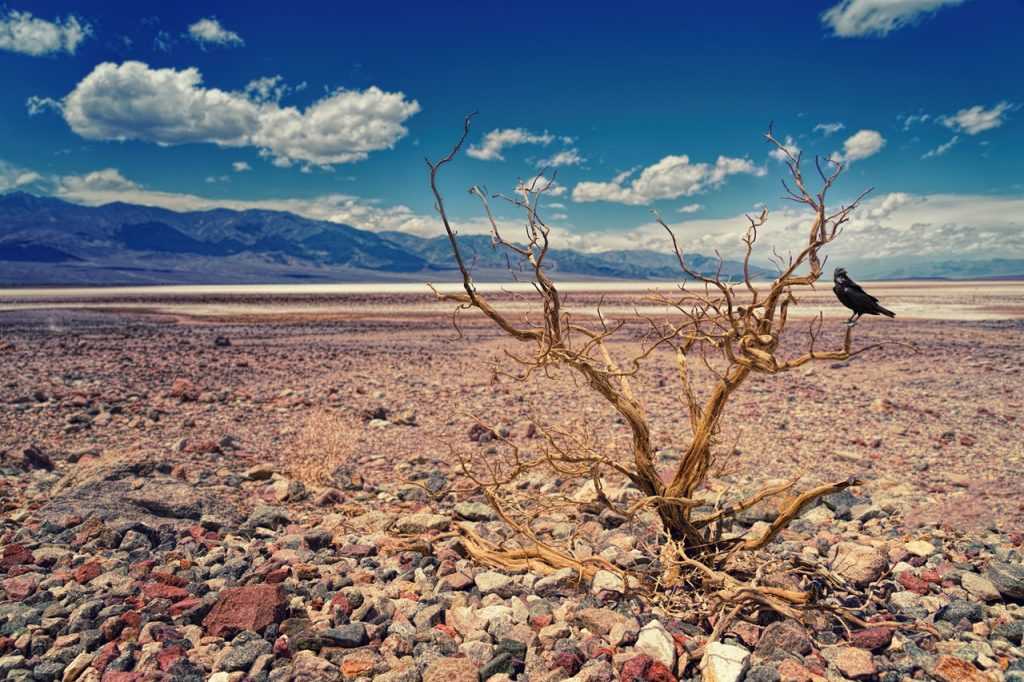How Science Can Help Us To Fight Drought?
“The world must come together to confront climate change. There is little scientific dispute that if we do nothing, we will face more drought, famine and mass displacement that will fuel more conflict for decades” Barack Obama on climate change.
Today the world is facing a greater water crisis than ever. Droughts of lesser magnitude are resulting in greater impact. Even in years with normal precipitation, water shortages have become widespread in both developing and developed nations, in humid as well as arid climates. When faced with severe drought, governments become eager to act. Unfortunately, this eagerness usually wanes when precipitation returns to normal.
Background: Between 2000 and 2017 more than 21,000 deaths took place in the world due to droughts, more than 20,000 of the total deaths happened in Africa.
What is a Drought?

A drought is defined as a prolonged period of low rainfall, that has as a direct consequence in decreasing the quantity of water in an ecosystem. This phenomena has economic, environmental and social impacts, some usual consequences of a drought can be: crops damage, wildfires, erosion, lowering in water reservoirs, health problems end several more.
Nowadays, one of the most important sciences strives is, to mitigate, prevent and fight this phenomenon that takes thousands of lives every year.
Preparing for Drought
People and governments need to adopt new practices and policies to prepare as much as possible for inevitable future droughts. Emergency spending once a crisis has begun is less effective than money spent in preparation. The Federal Emergency Management Agency (FEMA) estimates that every $1 spent in planning for a natural hazard will save $4 in the long term.
Many areas are extremely vulnerable to drought as people continue to be dependent on a steady supply of water. The U.S. Department of Agriculture recommends a series of conservation practices to help farmers prepare for drought. Some preventative measures include installing an efficient irrigation system that reduces the amount of water lost to evaporation, storing water in ditches along fields, regularly monitoring soil moisture, planting crops that are more drought-resistant, and rotating crops to allow water in the soil to increase.
In urban areas, many cities are promoting water conservation by addressing water usage habits. Some enforce water restrictions, such as limiting days when lawns and plants can be watered, and offering free high-efficiency toilets and kitchen faucets.
Some drought-ravaged cities are taking even more extreme measures to prepare for future droughts. In Australia, the city of Perth is planning for a massive wastewater-recycling program that will eventually provide up to a quarter of the city’s water demands by 2060. Perth has been dealing with a decline in rainfall since the mid-1970s. The city, which is on the edge of a huge desert, is also struggling with its history of over-consumption of water. Water-hungry traditions such as planting large, lush lawns and parks will need to be addressed through conservation measures.
How to Culminate Drought?
One of the ways drought is being faced around the world is by investigating how crops can survive droughts. In a study published in 2009 a group of researchers helped the community to understand how plants tolerate droughts, they represented and solved the structure of the hormone ABA (abscisic acid) along with its target protein called PYR1.
The interaction between this two molecules provide plants with, in essence, “drought resistance”, as it triggers different types of changes that help plants conserve water and tolerate a drought. By understanding the structure and the functioning of the two named molecules a whole new world of opportunities has been opened in the biotechnological field. Scientifics could now aim their efforts to “mimic” the action of the ABA in a spray-like product and therefore, protect vulnerable crops from a drought, just like Elizabeth Getzoff, a
Scripps Research Scientist suggests. However, at this date there is no document that shows a working ABA spray, yet.
Use of Shadow Balls:
But there could be some more simpler solutions to this problem, one of the most famous ones is the shadow balls (also called shade balls), these are 4-inch black plastic balls that are intended to cool the water by shading it, thus decreasing the evaporation of it, this shade also can prevent algae and bacteria growth. These balls are currently being used in different water reservoirs to conserve water in a more efficient way and results form the utility test say that this balls reduce the evaporation up to 90%.
Solid Rain:
Even though most of the solutions seem like a potential definitive solution, the truth is most of them haven’t been studied yet. The “solid Rain” as it is called is one of the most innovative methods for drought solutions. Unfortunately this unconventional methods can be not so good, as it is now being thought with cloud seeding, a study made by Professor Albert ( and two colleagues) of Tel Aviv University’s Department of Geophysics and Planetary Sciences, suggests that the method of cloud seeding using silver iodide and frozen carbon dioxide isn’t as effective as it was thought at the beginning instead it seems like the rainfall happened by chance.
It is important to stand out that science is working exhaustively to fight the drought phenomena and to understand how can we help plants to survive it, but sorrowfully there is no definitive solution yet, hopefully in a few years one of this unconventional invention change everything, before it’s too late.
WeeklyReviewer believes in a heavy handed approach to climate change activism. We believe human action can slowly but surely level the playing field with mother nature; by doing our part, people can reduce the negative impact for generations to come.

